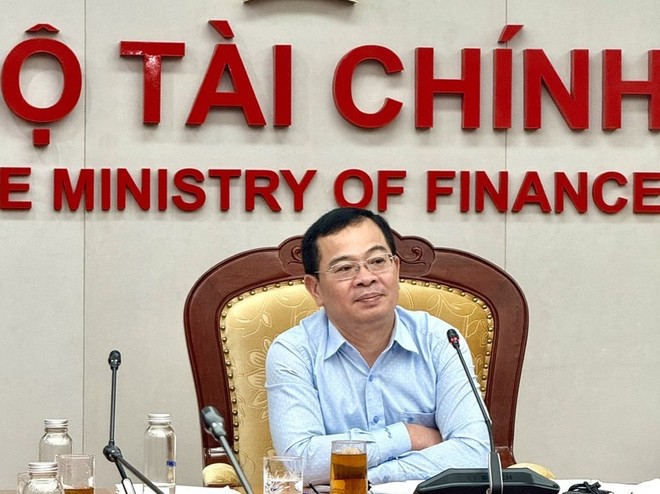A representative from the Ministry of Finance shared that approximately 6,000 government vehicles from the district level are expected to be transferred to the commune level as a result of reorganization.
Socializing Public Assets
Mr. Nguyen Tan Thinh, Director of the Department of Public Property Management (Ministry of Finance), regarding the streamlining of the apparatus, in accordance with the assigned functions and tasks, the Ministry of Finance has submitted to the Government for the issuance of two Government Decrees to create a legal basis for arranging and handling headquarters, public assets when implementing reorganization, merging; transferring tasks from one agency to another or dissolution…
“The arrangement is carried out on the principle that the assets of the ministries, sectors, and localities must first be responsible by the ministries, sectors, and localities themselves in accordance with the competence prescribed in the Law on Public Asset Management and Use and the guiding Decrees of the Government.
However, to support the ministries, sectors, and localities, the Ministry of Finance has recently directed the establishment of a Coordination Team to arrange and allocate headquarters and works of agencies, organizations, and units with central and local relationships”
– said the Director of the Department of Public Property Management.
Mr. Nguyen Tan Thinh, Director of the Department of Public Property Management, Ministry of Finance
According to statistics up to the end of 2024, there were 11,034 land and house foundations that were unused, used inefficiently, or used for the wrong purpose. The surplus facilities are mainly concentrated in schools and medical stations in mountainous, remote, and difficult areas.
At the Government’s working session on practicing thrift and anti-waste in 2024, on the morning of April 24, Minister of Finance Nguyen Van Thang said that by December 2024, the number of houses and land of ministries, branches, and localities approved for rearrangement plans was 205,862, and more than 62,700 foundations had not yet had plans.
In the context of surplus assets arising from the reorganization of the apparatus, the representative of the Ministry of Finance mentioned the socialization of public assets.
“Public assets can be leased, linked, or used for business purposes, especially in fields such as health, education, and implementation in accordance with regulations. This not only helps reduce the pressure on the state budget but also helps to effectively exploit assets, avoiding the situation of emptiness and prolonged waste” – emphasized Mr. Nguyen Tan Thinh.
The Ministry of Finance requested the units to thoroughly grasp the direction of General Secretary To Lam on giving priority to the effective exploitation of public assets. Headquarters that are no longer used for the right purpose need to be converted for the fields of health, education, or community activities.
Transfer of Government Vehicles from District to Commune Level
Regarding government vehicles, according to the draft guidance of the Ministry of Finance, due to the reorganization of administrative units and the construction of a two-level local government model (without organizing the district level, transferring tasks to the commune level), the Ministry will amend and supplement the regulations on the norms for the use of cars. serve the general task of a maximum of 2 cars/commune, and the People’s Committee of the provincial level will adjust the number of cars between communes (more or less than 2 cars), the commune manages directly.
Mr. Nguyen Tan Thinh, Director of the Department of Public Property Management (Ministry of Finance), said that about 6,000 government vehicles from the district level are expected to be transferred to the commune level. Basically, the number of government vehicles transferred from the district level to the commune level is equivalent.
“Cars will be restructured in terms of norms between provincial and commune levels to ensure the performance of provincial and commune-level tasks in the new context, towards communes being equipped with cars to serve their tasks,” said Mr. Thinh.
In addition, for specialized cars to serve specific activities, they shall be handled according to the principle that agencies, organizations, and units that are assigned tasks shall be entitled to receive corresponding assets to continue performing their assigned tasks.
In case it is necessary to pick up and drop off civil servants, public employees, and laborers when they have to change their workplaces, arrange existing cars or supplement norms for the use of specialized cars to purchase or rent cars according to regulations to serve the pick-up and drop-off, ensuring that civil servants, public employees, and laborers complete their assigned tasks fully, ensuring economy and efficiency.
Nguyen Linh (ANTĐ)










































